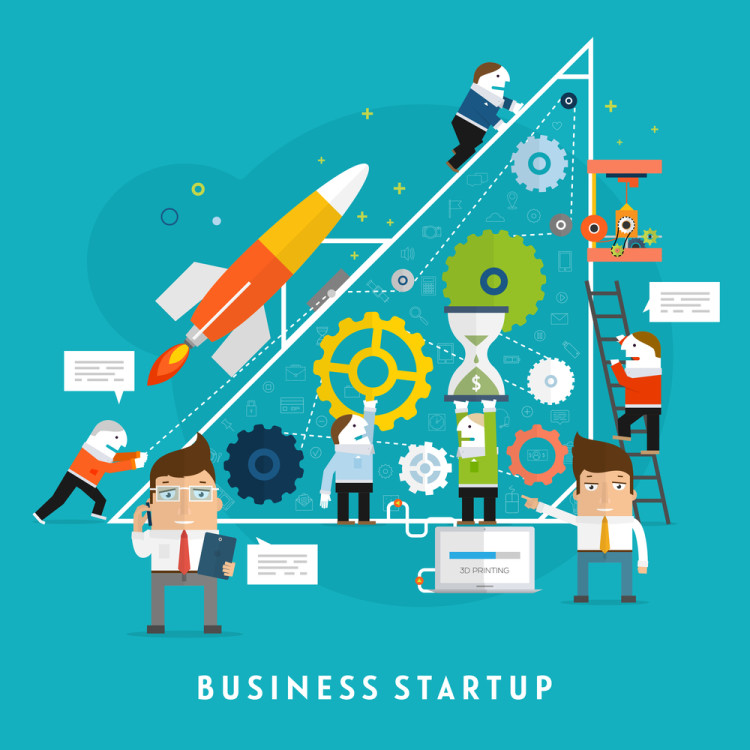Want More Startups? Build a Better Safety Net: Noah Smith

(Bloomberg View) —Back in 2012, Daron Acemoglu — an economist I follow and greatly respect — wrote a paper along with James Robinson and Thierry Verdier claiming to explain why Scandinavian countries are (supposedly) less innovative than the U.S. Acemoglu et al. theorized that Scandinavia embraces “cuddly capitalism” — a strong safety net that prevents failure — while the U.S. goes in for “cutthroat capitalism.” The do-or-die nature of the American system, they said, causes people to try a lot harder at innovation than their European counterparts.
Bloggers were quick to point out that the paper’s entire premise was probably wrong. Scandinavia isn’t, in fact, less innovative than the U.S. Acemoglu et al. used patents as their measure of innovation, but the volume of patents is more about intellectual property law than entrepreneurial effort. Broader measures of innovation show that the U.S. and Scandinavian countries are about equal. Acemoglu et al. had constructed an elaborate theory to explain something that probably never existed.
So what was wrong with the theory? In Acemoglu et al.’s model universe, the thing that determines entrepreneurial success isn’t how smart you are, how much risk you can take, how good the business climate is, or how much demand there is in the economy — it’s how hard you try.
Effort-based explanations are relatively common in economics and econ punditry, especially among those who lean toward a free-market ideology. I occasionally hear people say that southern Europe is economically worse off than northern Europe because the former has a weak work ethic. Others claim that welfare makes people lazy. And some economic theories even attribute recessions to a great vacation — a sudden decrease in willingness to work. In a recent Bloomberg View debate, my colleague Tyler Cowen suggested that lower employment levels since the Great Recession may be caused by more men wanting to stay home and play video games.
When it comes to getting a job, the evidence for the effort hypothesis is mixed. Most studies show that the creation of cash-transfer programs doesn’t discourage work, while there is evidence that the U.S. welfare reform in the 1990s did force some people back into the workforce.
But when it comes to entrepreneurship, there’s another factor that’s probably a lot more important than effort. It’s risk.
For a prospective entrepreneur, the choice usually isn’t between starting a business and playing video games — it’s between starting a business and working for someone else. The difference in effort between those two career paths probably isn’t that big. But entrepreneurship is much, much riskier than holding a job. In general, you’re a lot more likely to see your business fail than to be fired.
The risk theory of entrepreneurship says that when people already have a lot of risk, they’re less likely to take on more. This is just because most people are risk-averse — if they’re under threat of losing their job or paying a huge medical bill, they’re probably going to be less willing to gamble all of their savings on starting a company.
So if the risk theory is right, a stronger safety net should lead to more entrepreneurial activity, not less. Whatever negative effect public assistance has on effort will be more than canceled out by the greater risk-taking capacity of the poor and unemployed.
That’s what the evidence seems to indicate. A 2004 study showed that food stamps make people more likely to open a business. Another study in 2012 demonstrated that giving extended unemployment benefits also makes people more likely to start companies.
Now we have yet another piece of evidence. Economists Joshua Gottlieb, Richard Townsend and Ting Xu studied the effects of maternity leave in Canada. They found that women who had the guaranteed option to return to their jobs after maternity leave were more likely to start businesses. The reduction in risk from having the fallback option made entrepreneurs more willing to take the plunge. That’s the opposite of what an effort-based model would predict.
So the data is piling up — at the margin, risk is a lot more important than effort in determining who starts a business. With the U.S. suffering declining entrepreneurship rates, this has big implications for policy. Instead of making American capitalism less cuddly, government should focus on finding ways to limit personal risk. That could include single-payer health care, expanded parental leave and other social safety-net programs. It could also include nudging households to take on less debt, since debt creates risk. But whatever the solution is, making the economy more cutthroat seems likely to hurt the goal of boosting business dynamism.
This column does not necessarily reflect the opinion of the editorial board or Bloomberg LP and its owners.



No Comment